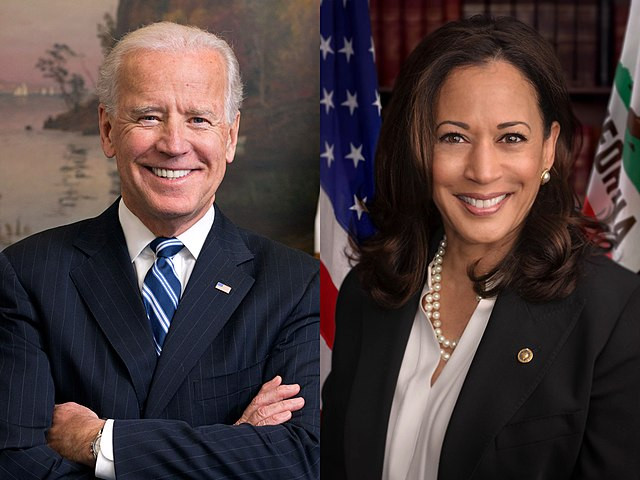President Joe Biden has withdrawn from the 2024 presidential race, endorsing Vice President Kamala Harris as his successor. This move has unveiled a trove of political intrigue and previously undisclosed tensions between the two leaders, painting a complex picture of their relationship and the Democratic Party's future.
Sources close to the administration reveal that Biden's endorsement of Harris was fraught with personal and political considerations, as reported by Radar Online. The 81-year-old president's decision came amidst growing doubts about Harris's ability to defeat former President Donald Trump in the upcoming election. According to insiders, Biden's private reservations about Harris's candidacy have long simmered beneath the surface, tracing back to a series of public and private clashes that began even before Harris became his vice president.
The animosity between Biden and Harris dates back to the 2020 Democratic primaries. In April 2019, then-Senator Harris publicly supported allegations by four women who accused Biden of inappropriate touching. "I believe them, and I respect them being able to tell their story and having the courage to do it," Harris stated at the time. This stance set the stage for a contentious relationship.
The tension escalated during a primary debate in Miami, where Harris criticized Biden for his past opposition to federal busing policies aimed at desegregating schools. Her pointed remarks, highlighting Biden's praise for two segregationist senators, reportedly infuriated Biden, who was overheard muttering an expletive-laden reaction to fellow candidate Pete Buttigieg. First Lady Jill Biden was also reportedly livid, expressing her anger in private.
Despite the public facade of unity, Biden and Harris's working relationship has been marred by underlying tensions. Biden allegedly sidelined Harris on several occasions, assigning her challenging tasks such as managing the immigration crisis at the Texas-Mexico border-an issue fraught with political pitfalls. A former top aide to Harris lamented, "They're consistently sending her out there on losing issues in the wrong situations for her skill set."
As Biden's presidency progressed, the friction between the two leaders only intensified. Insiders claim Harris orchestrated a behind-the-scenes campaign to undermine Biden, particularly after learning he might replace her on the 2024 ticket. One Democratic Party insider disclosed, "Kamala hates Biden's guts. She's making the rounds telling anyone who'll listen he's a loser now."
Facing mounting pressure from Democratic leaders and donors, Biden decided to step aside following a dismal debate performance against Trump. Announcing his withdrawal on social media, Biden stated, "While it has been my intention to seek re-election, I believe it is in the best interest of my party and the country for me to stand down and focus entirely on fulfilling my duties as president for the remainder of my term." He later endorsed Harris, urging Democrats to unite behind her to defeat Trump.
Vice President Harris, now the Democratic frontrunner, faces a challenging path to the presidency. Her tenure as vice president has seen her spearhead key initiatives on reproductive rights and gun control, yet she has also been criticized for her handling of immigration issues. Harris has a mixed record in polls, often trailing Trump by narrow margins.
A recent Economist/YouGov poll showed Harris trailing Trump by 4.5 points, whereas Biden lagged by 3 points. State-level polls indicate similar challenges, with Harris performing slightly worse than Biden in key battleground states like Wisconsin, Pennsylvania, and Michigan. Despite these hurdles, Harris remains a symbol of potential change, representing a new generation of leadership as the first woman, first Black, and first South Asian vice president.
Harris's public image has been shaped by her vigorous advocacy for reproductive rights and gun safety. She launched a "Fight for Reproductive Freedoms" tour in 2024 and has actively supported red flag laws to prevent gun violence. However, her efforts on immigration have drawn criticism from both sides of the aisle, with Republicans dubbing her the "border czar" and criticizing her handling of the situation.
As Harris prepares for a possible nomination, the Democratic Party faces a critical juncture. Biden's departure has left a vacuum that Harris must fill, both in terms of leadership and voter confidence. While her potential to rally the Democratic base remains uncertain, her candidacy could invigorate a party seeking to consolidate an anti-Trump coalition.






